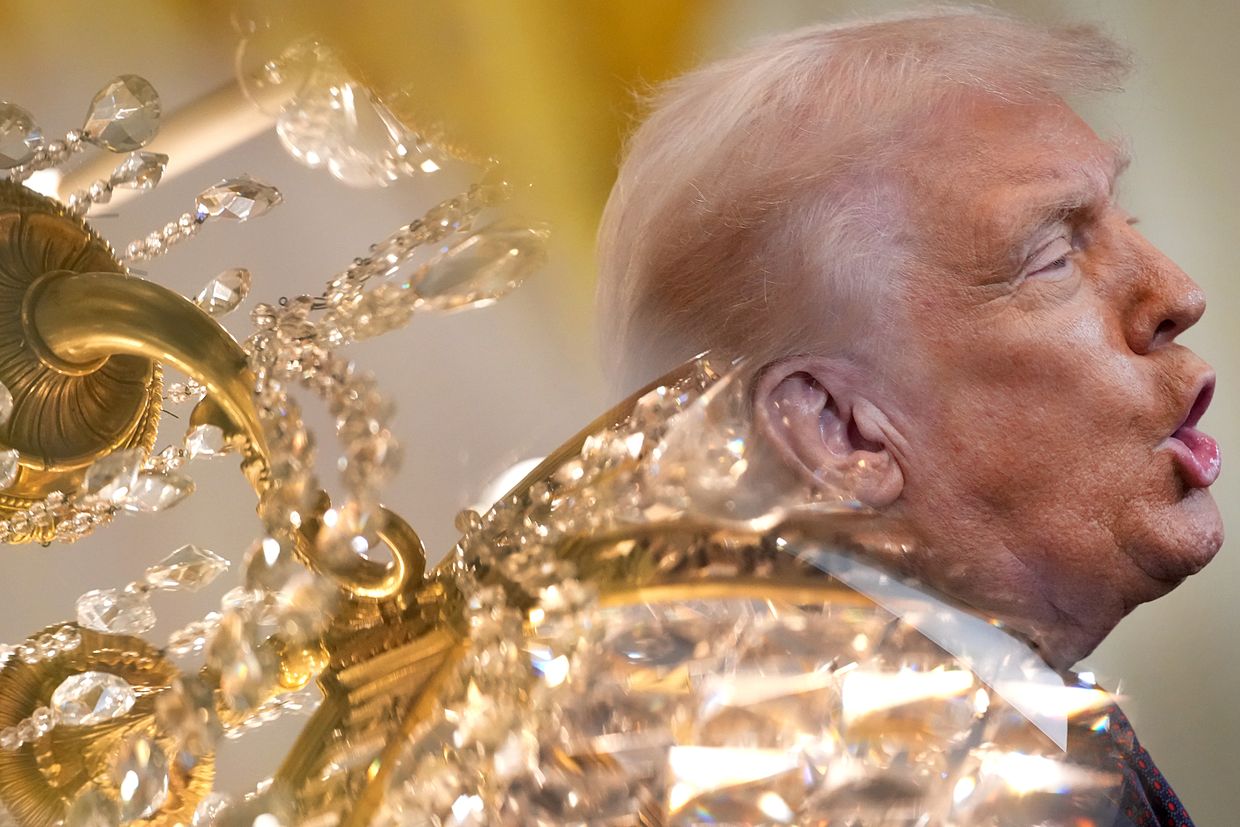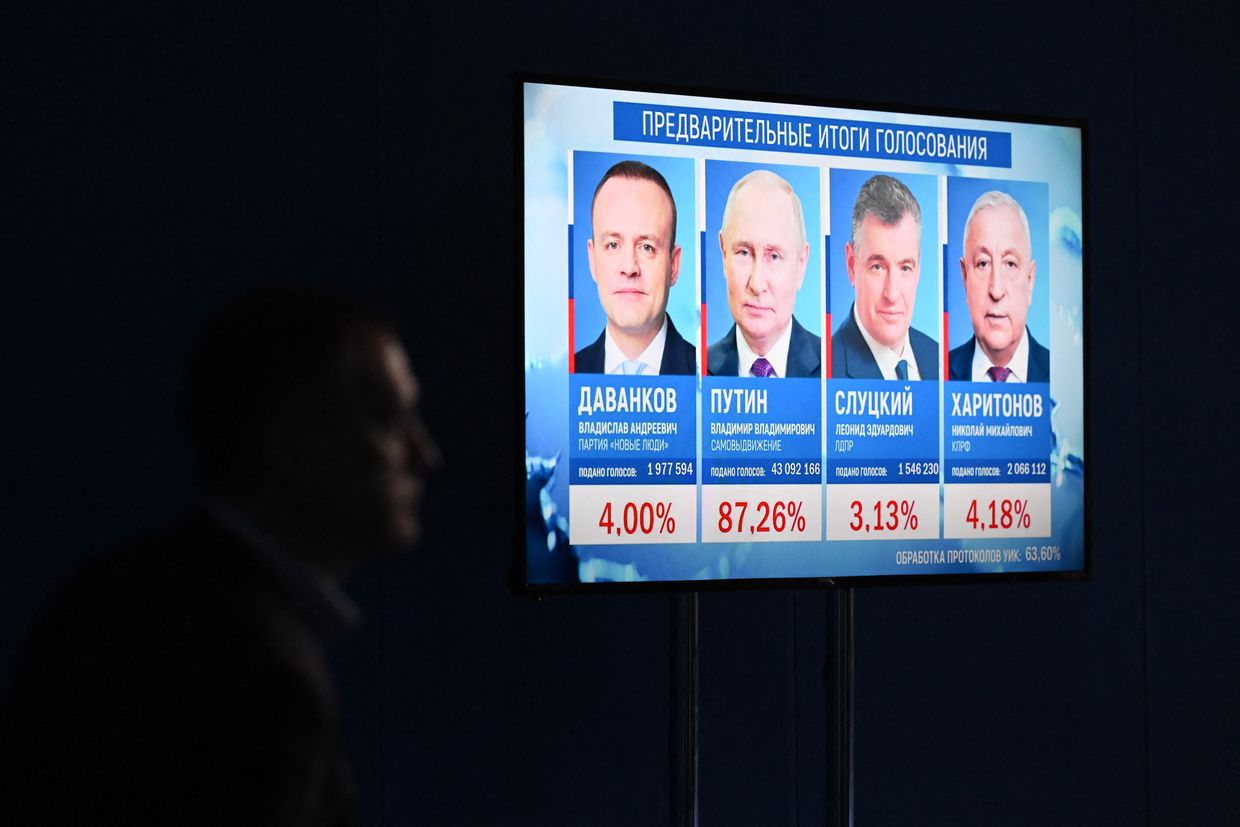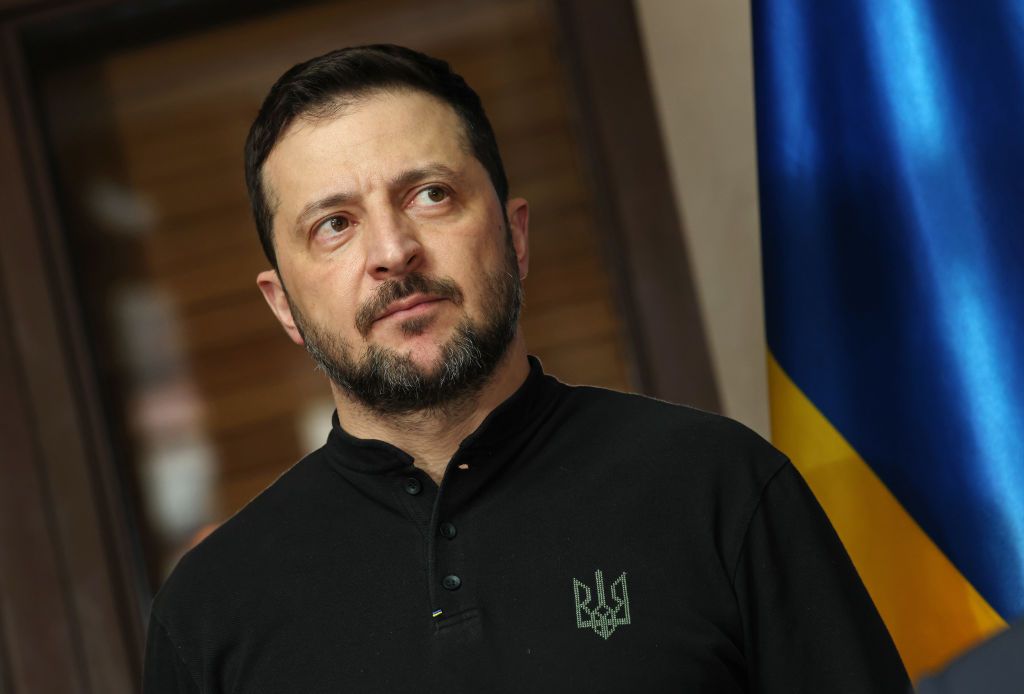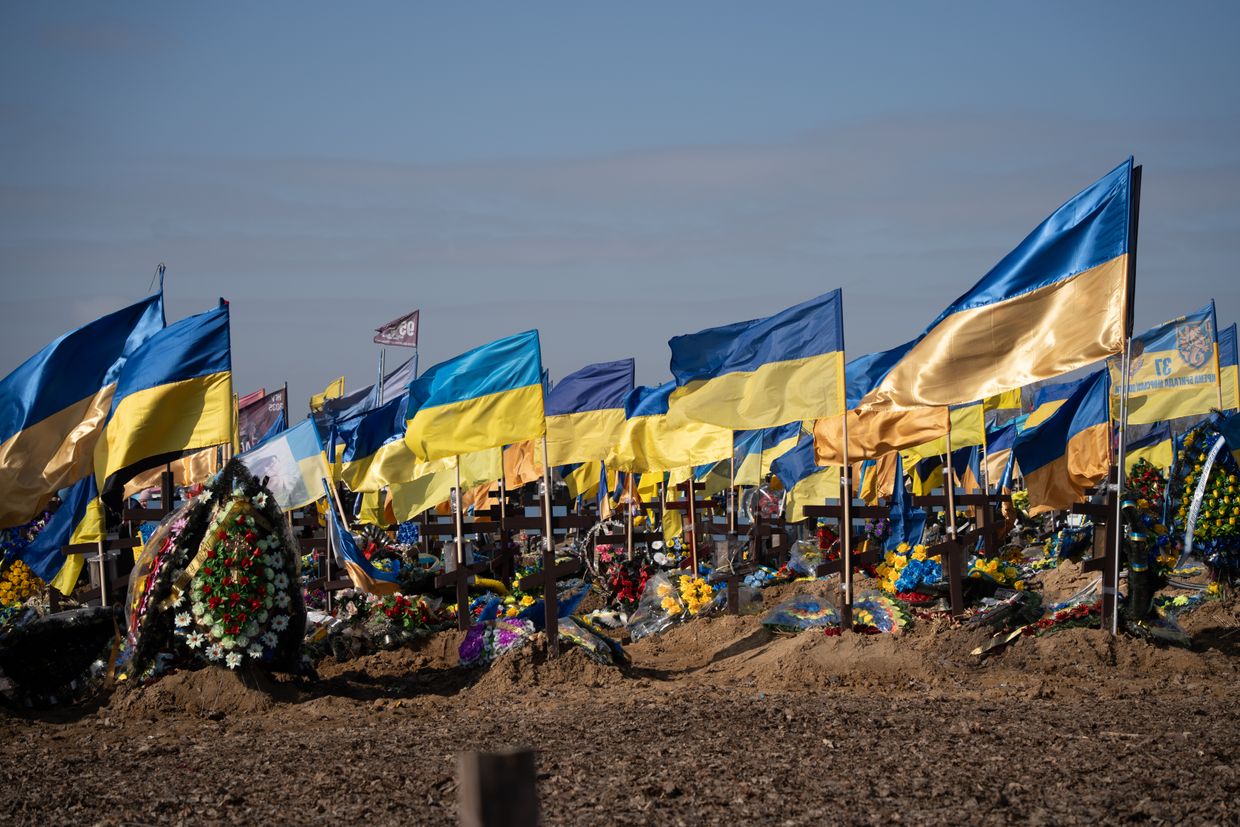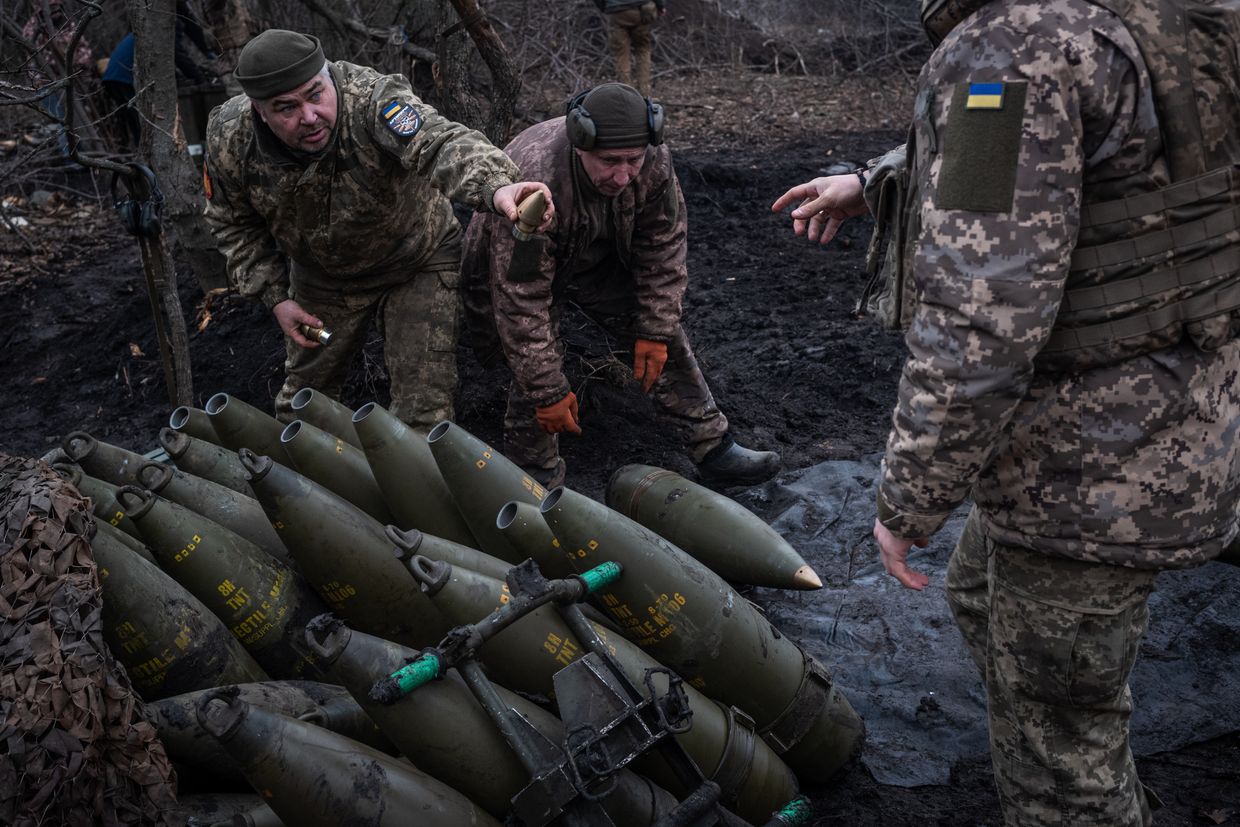How Trump is helping Putin achieve the original aim of his full-scale invasion of Ukraine

U.S. President Donald Trump delivers remarks after signing an executive order at his Mar-a-Lago resort on February 18, 2025 in Palm Beach, Florida (Joe Raedle/Getty Images)
U.S. President Donald Trump's claim that Ukraine's president is an illegitimate "dictator" aligns with Kremlin war objectives and puts Volodymyr Zelensky in an almost impossible situation, experts and analysts have told the Kyiv Independent.
"In the last few days we’ve seen how closely Trump has aligned himself with (Russian President Vladimir) Putin’s view of Ukraine in general and Zelensky in particular," Ruth Deyermond, senior lecturer in post-Soviet security at King's College London, said.
"The demand for elections at a point when they obviously can’t be held fairly is a Kremlin talking point that seems designed to give Zelensky an impossible choice — hold elections under impossible conditions, allowing Russia to try to steal them and install a puppet, or refuse and be labeled a dictator," she added.
Russia has been demanding an election in Ukraine in hopes to get rid of Zelensky, destabilize the political situation and potentially install Russian puppets in power, experts say. Trump echoed the Russian demands this week.
Trump's comments stunned Ukraine and its allies, and flipped reality on its head as he labeled Zelensky as a “dictator” and simultaneously embraced Putin — a dictator who has not held a single free and fair election for many years — as a legitimate democratic leader.
Speaking after U.S. officials held their first official meeting with their Russian counterparts since the start of the full-scale invasion, Trump on Feb. 18 falsely claimed that Zelensky had a 4% approval rating, adding that in order to "have a seat at the table" during negotiations, Ukraine should hold elections despite Russia's war.
The day after, Trump went even further, saying Zelensky "refuses to have elections, is very low in Ukrainian polls, and the only thing he was good at was playing (former U.S. President Joe) Biden like a fiddle."
"A dictator without elections, Zelensky better move fast or he is not going to have a country left," he added.
Is Ukraine a dictatorship?
Most of the elections held by Ukraine since 1991 have been recognized by domestic and international observers as free and competitive.
In contrast with Ukraine, elections have been routinely rigged in Russia, genuine opposition candidates have not been allowed to run, and the Kremlin's monopoly on television ensured that only government-backed candidates have air time.
In 2020, Russia held a rigged vote on constitutional amendments that eliminated limits on Putin's presidential terms, effectively making him dictator for life.
More than 20 opponents of Putin have been killed or died in mysterious circumstances. Russian opposition leader Alexei Navalny died in prison in February 2024, with independent analysts accusing Putin of either ordering his murder or creating conditions that led to his death.

Elections in Ukraine
Under the martial law act passed by Ukraine after Russia launched its full-scale invasion on Feb. 24, 2022, presidential, parliamentary and local elections are banned.
If martial law had not been imposed, Zelensky's term would have ended on May 20, 2024. Both Russia and some of Zelensky's critics claim that he ceased to be a legitimate president on May 20.
Major Ukrainian constitutional lawyers and legal experts believe the claim is false and unfounded.
The Kremlin line
The Kremlin has long been pushing the narrative that, since Zelensky is allegedly illegitimate, he cannot sign any documents in peace talks.
According to the Kremlin, Ukraine must hold elections, and a newly elected president should sign a peace deal.
Stefan Wolff, professor of international security at the University of Birmingham, told the Kyiv Independent that "elections in Ukraine before a final peace deal will be better for Russia than for Ukraine."
"It will offer Russia an opportunity to unleash its usual election meddling and to sow further division and instability," he said.
"Replacing Zelensky has been a war aim for Russia since the (first) day of the full-scale invasion in 2022, so this is also part of Putin’s victory narrative."
Bettina Renz, a professor of international security at Nottingham University, said that Trump "is reiterating various longstanding Kremlin narratives about Ukraine and this is playing into the Kremlin’s hands."
"Ukraine is a sovereign state and the idea that the timing of elections should be dictated by external powers as a precondition for a ceasefire or peace deal is baffling," she added.
What's behind Trump's echoing of Kremlin propaganda?
While the U.S. may not share the Kremlin's aim of installing a pro-Kremlin president in Ukraine, Trump's actions could inadvertently aid it.
Deyermond argued that Trump's "tantrum" could be a reaction to Zelensky's reluctance to immediately sign a deal that would give the U.S. a stake in 50% of Ukraine's natural resources through a joint investment fund as payback for its support for Kyiv.
Zelensky pushed back against a first version of the deal, suggesting he couldn't sign it as it didn't include security guarantees for Ukraine.
"Trump seems angry that he can’t bully Zelensky and he’s trying to put the blame on him for the failure to get a quick ‘deal’ on peace, which he promised American voters during the election," Deyremond said.
Wolff and Ryhor Nizhnikau, a Russia expert at the Finnish Institute of International Affairs, also attributed Trump's comments to his personal dislike of Zelensky.
This predates Russia's full-scale invasion and stems from Zelensky's refusal to investigate a Ukrainian firm linked to Hunter Biden, the son of Trump's political opponent and ex-President Joe Biden, in 2019, they said.
Trump's pressure on Zelensky resulted in his first impeachment.

What could happen if it works?
If Ukraine found itself forced by U.S. pressure to hold elections, experts said Russia would almost certainly seek to destabilize the political situation within the country and install a pro-Kremlin leader.
Olha Aivazovska, head of Ukrainian watchdog Opora, told the Kyiv Independent that any Russian attacks on or around an election day "would lead to low voter turnout,” which in turn would lead to "weak" legitimacy for the newly-elected Ukrainian government.
"If the ceasefire is violated at the start of the electoral process, Ukraine will lose the opportunity to properly organize these elections,” she added.
Ukrainian political analyst Volodymyr Fesenko said that as part of peace negotiations, Russia could demand that Ukraine legalize pro-Russian parties in the election, which would trigger a conflict with nationalist groups, destabilize the political situation and create another excuse for the Kremlin not to recognize the election.
"Russia’s goal is to weaken the state and implement a Georgian-style scenario in Ukraine," Aivazovska said, referring to the country’s Georgian Dream party, which initially positioned itself as pro-Western but has drifted into Russia’s orbit.
"(In Ukraine) Russia can achieve the same through elections — elections that Russia will control and influence, enabling it to incorporate its political groups (into Ukrainian politics)," she said.
"This is something Russia will certainly do if the elections are not conducted in a protected manner."
Russia could, in short, achieve the original aims of its full-scale invasion by political rather than military means, aided in part by the U.S.
Nizhnikau stressed that "the original goal of the military invasion was to orchestrate regime change in Kyiv and install a puppet government."
When should elections be held in Ukraine?
Experts say that, contrary to the Kremlin narrative about immediate elections, Ukraine should only hold elections when there is stable peace and when the country is fully prepared.
Aivazovska believes that Ukraine should prepare its election infrastructure within a 12-month period after a ceasefire deal is signed. But elections can only be held when a final peace deal is signed and implemented, she added.
"Demobilization and the lifting of martial law must occur at the stage of the peace agreement and its implementation," she said.
"Only then will martial law be lifted, and a fully-fledged, democratic, and transparent electoral process will begin."
Politicians and experts the Kyiv Independent has spoken to emphasized that elections could only be held when peace is secure, and Ukraine is fully prepared.
Nizhinikau said that "if the elections occur before the peace deal, it will be self-defeating at the very least."
"It will create an illegitimate government in Ukraine because holding free and fair elections under current conditions is impossible," he said. "The electoral campaign will undermine a fragile consensus and unity inside Ukraine: it rests on the war efforts against the common enemy and elections may ruin it."

